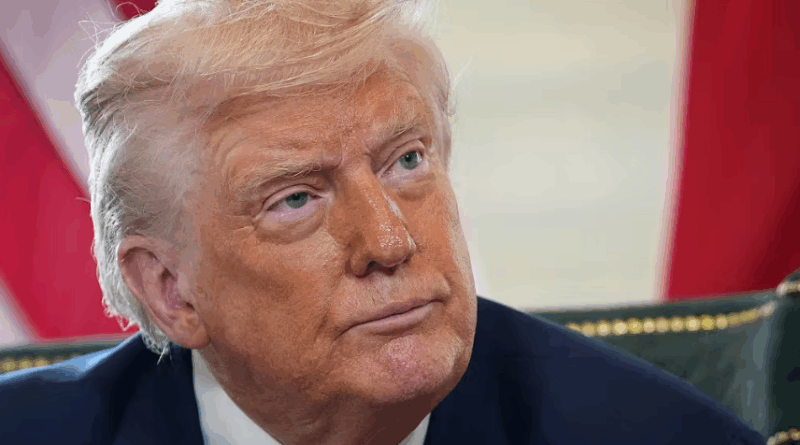Trump Drops The Hammer On Canada, Pushes Mexico To Cut A Trade Deal In 90 Days
President Donald Trump signed an executive order late Thursday night slapping a 35% tariff on Canadian imports, citing the country’s failure to crack down on drug trafficking and its recent support for Palestinian statehood. The tariffs take effect at midnight and mark a sharp escalation in Trump’s trade agenda as the August 1 deadline for updated trade agreements passed.
Meanwhile, Mexico was granted a 90-day extension to finalize a deal, with Trump praising a “very successful” phone call with Mexican President Claudia Sheinbaum. “We are getting to know and understand each other,” Trump said in a Truth Social post. “The complexities of a Deal with Mexico are somewhat different than other Nations because of both the problems, and assets, of the Border.”
The current agreement with Mexico remains in place for the duration of the 90-day extension. That deal includes a 25% tariff due to fentanyl trafficking, another 25% tariff on vehicles, and a 50% tariff on steel, aluminum, and copper. Mexico has now agreed to eliminate numerous non-tariff trade barriers, and talks will continue over the coming months. Trump said Vice President JD Vance, Treasury Secretary Scott Bessent, Secretary of State Marco Rubio, and other top officials joined him on the call with Sheinbaum.
Trump’s executive order slamming Canada pointed to Ottawa’s “failure to devote satisfactory resources to arrest, seize, detain, or otherwise intercept drug trafficking organizations, other drug or human traffickers, criminals at large, and illicit drugs.” The order followed Trump’s warning that a trade deal with Canada would be difficult after Prime Minister Mark Carney announced plans to recognize a Palestinian state at the upcoming United Nations General Assembly.
“Wow! Canada has just announced that it is backing statehood for Palestine. That will make it very hard for us to make a Trade Deal with them. Oh’ Canada!!!” Trump posted.
All nations that failed to reach trade agreements by the deadline will be hit with baseline 10% tariffs starting August 7, with some facing total rates as high as 41% depending on their trade balances and cooperation on key issues. More than a dozen countries are impacted under the sweeping realignment.
The White House has framed the tariffs as part of a broader national economic strategy to end foreign freeloading and to restore American leverage in international trade. “This isn’t about punishment,” a senior administration official said. “It’s about setting a new standard. America will no longer subsidize foreign economies at the expense of our own.”
Negotiations with other major partners, including China, remain active. Trump has repeatedly emphasized that all deals must meet American interests on energy, border security, labor protections, and national sovereignty.
The president’s latest actions underscore his aggressive approach to trade enforcement in his second term, using tariffs not only as economic tools but as diplomatic leverage to force allied nations into alignment with U.S. policy priorities. The message is clear: those unwilling to act in America’s interest will pay a price.

